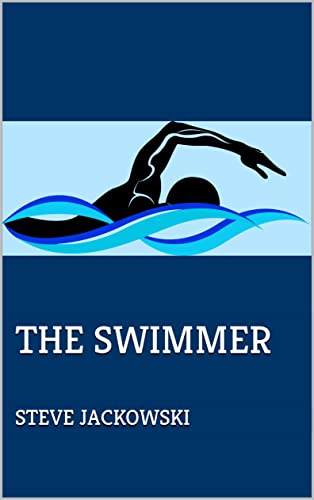
We seem to have worked out all of the challenges I pointed out in my previous post:
- Sentence Structure: Peyo uses popular French so there are more fragments now
- Culture: we assume a knowledge of American ways and don't try to create equivalents
- Elimination and addition of text: this is less of an issue than we thought
- Rhythm: Peyo seems to have now captured my rhythm
We've also worked on formatting and have both come to understand how dialog is represented in popular French fiction as opposed to classic French fiction. There's a lot more ambiguity in terms of which words are 'spoken' versus description about the dialog or the person speaking. For example, "I tried," he said walking home, "eating raw sushi." becomes - I tried he said walking home eating raw sushi.
Was he walking home when he tried it or did he say he was trying while he was walking home eating the sushi? And paragraph usage - in modern French fiction it appears that there's no good way to represent multiple paragraphs in one person's dialog - it's all one paragraph no matter how long. But as I said, we've worked out all these challenges.
But now, the culture issue has come back. I guess this is to be expected, but we thought we'd worked out a strategy to handle cultural differences. Not this one.
In The Shadow of God, Jim is a somewhat reclusive character who steps into a family of lawyers and well-connected people who love to share their larger-than-life experiences. Coming from more humble origins and a being a bit more circumspect, Jim still gains immediate credibility by telling shaggy dog stories. For those of you who aren't familiar with shaggy dog stories, these are tales that are embellished as much as possible to lead your listeners down the garden path and then to conclude the story with a play-on-words pun. Many of you are familiar with one that ATT turned into a television commercial some years ago.
I'll avoid the shaggy dog aspect by keeping it short - I could go on and on about descriptions of the people, the lands surrounding the kingdom, the chases, etc., but I won't. It's the story of a kingdom besieged by a giant dragon with huge yellow fingers. Knights try to slay the dragon but the creature scoops them up in his massive yellow fingers and tosses them into his mouth like popcorn. With all the knights eaten, their squires try to slay the dragon but they, too, are scooped up by the horrible yellow fingers. After weeks of siege, the kingdom is starving. A young page volunteers to get past the dragon to reach the sheriff who will bring an army to kill the dragon. But the king can't see sending a young page to his certain death so he refuses. Weeks later, people are dying of starvation. The page volunteers once more and this time the king reluctantly agrees. The people gather on the parapets of the castle and watch as the little page makes a run for it. The dragon scoops him up easily and a collective sigh of disappointment and despair runs through the crowd. They turn away. But then someone says "Look!" and sure enough, the little page is so small that he has slipped through the yellow fingers. The page starts to walk and as the fingers come down, he escapes again. Ultimately, he makes it to the sheriff who indeed does bring the army to slay the dragon and the kingdom is saved. The moral? Let your pages do the walking through the yellow fingers.
Now it's possible that this ATT motto - Let your fingers do the walking through the yellow pages - does exist in France. In fact, page has the same ambiguity - it can be a young trainee for knighthood, and it can be paper in a book. They do have les pages jaunes (yellow pages), so this one MIGHT work. Peyo is looking into it. But I can guarantee my next two shaggy dog stories with their plays on words won't translate. The expressions don't exist in France and even if they did, the translation of the plays on words definitely won't work. In one, my play on words is based on glass and grass. Verre and herbe clearly won't work.
So what do we do? One possibility is for Peyo to substitute French shaggy dog stories. These must exist as the French love les jeux de mots (plays on words).
The other possibility is that Peyo keeps the existing translations and then adds a footnote for each, explaining the English expression and the juxtaposition of the words to create the play on words in English. I kind of like this option as it preserves the integrity of my way of telling these stories and of Jim's character.
We many end up with a combination of the two approaches as one of the stories uses such an obscure expression as the base for the play on words, that even with a footnote, it wouldn't make sense to someone who didn't grow up in an English-speaking culture. That one probably needs to be replaced with a native French story.
The good news is that with over a third of the book translated, aside from the shaggy dog stories, I think we've seen all the major issues we're going to see. I now go through the upcoming sections of the book in advance and give Peyo warning about possible difficulties so he can move through them prepared. I did this recently for hang-gliding scenes where I researched the French vocabulary for hang gliding terms and made them available to him. He was flawless in his application of terms to a sport he'd never experienced.
So here we are, more than a third of the way through the text being translated. We're actually probably more than half-way through the process given all we've had to learn about language, style, and working together.
I'm having a blast.
Writers usually work alone. But, I must admit that it's fun working with someone else. And, it's incredibly rewarding to see my story reemerge in another language.
I'll post again on this topic if other significant issues arise. Otherwise, I'll post in a few months when we have feedback from a few of our initial French readers. Note the 'our' in the last sentence. If there's one thing I've confirmed in this process, translation, at least in the way we're doing it, is really a joint rewrite. For the French version, Peyo is my co-author.


 RSS Feed
RSS Feed